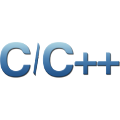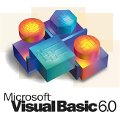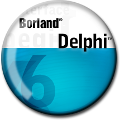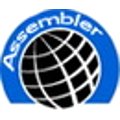
Programming languages
Our clients’ diverse requirements as to a choice of software environment and a programming language (mainly connected with the development of existing systems) have been conducive to the continual improvement of our skills. Consequently, we are ready to take up tasks which need quick mastering of a specialized programming language or working in untypical software environment.
One of the most popular programming languages. It is characterized by high efficiency of an output executable files, direct access to hardware and operating system resources, a fair amount of freeware and commercial libraries that can be utilized in C++ applications (developed using C, C++ or other languages), hardware platform and OS independence (compilers available for many platforms), marginal runtime environment requirements.
A simple, modern, general-purpose, object-oriented programming language. Source code written in C# is not compiled to native (executable binary) file but to managed. An assembly contains intermediate language and metadata rather than binary code and can be used on different computer platforms without being rewritten for specific architectures (as long as particular platform includes framework that interprets intermediate language).
An object oriented programming language which is dedicated for developing multiply levelled, integrated web applications, but also an automatic server processes and the websites. A number of integrated programming frameworks were created based on PHP, the frameworks provide a ready to use solutions for a wide spectrum of replicable system problems.
It is a programming languages utilizing syntax derived from BASIC. Visual Basic is not fully object-oriented language: does not provide inheritance and polymorphism mechanisms. It utilizes ActiveX technology.
Interpreted, interactive programming language having fully dynamic types set system and automatic memory management. Python is capable to object-oriented, structural and functional programming.
Object-oriented language deriving much of its syntax from C and C++ but with a simpler object model and fewer low-level facilities and some ideas from Smalltalk (virtual machine, garbage collection). Java applications are typically compiled to bytecode that can run on any Java virtual machine (JVM) regardless of computer architecture.
One of the first RAD, object-oriented languages originally created by Borland and deriving from Turbo Pascal.
A low-level language for programming computers that implements a symbolic representation of the numeric machine codes and other constants needed to program a particular CPU architecture. This representation is usually defined by the hardware manufacturer, and is based on abbreviations (called mnemonics) that help the programmer remember individual instructions, registers.








